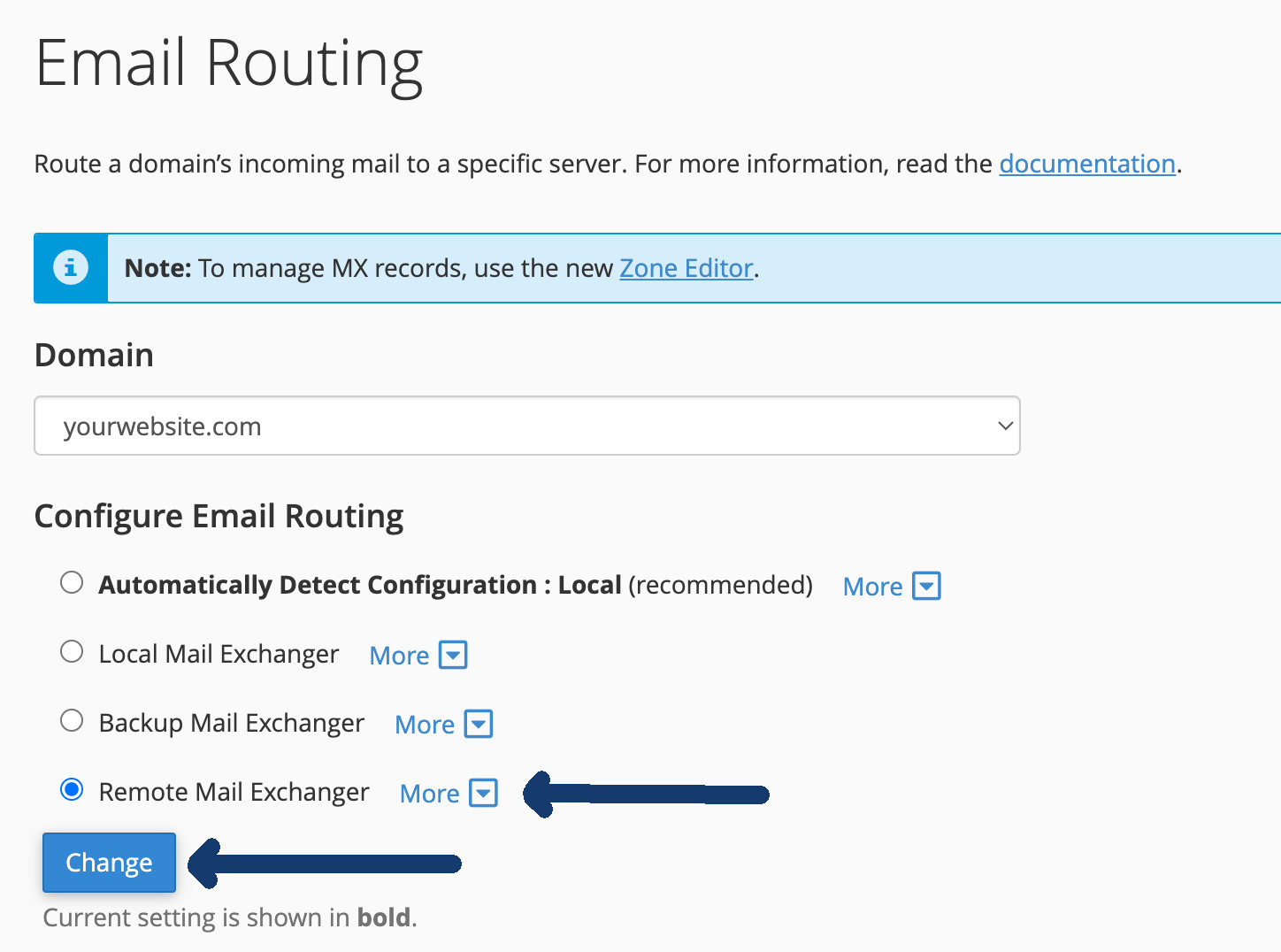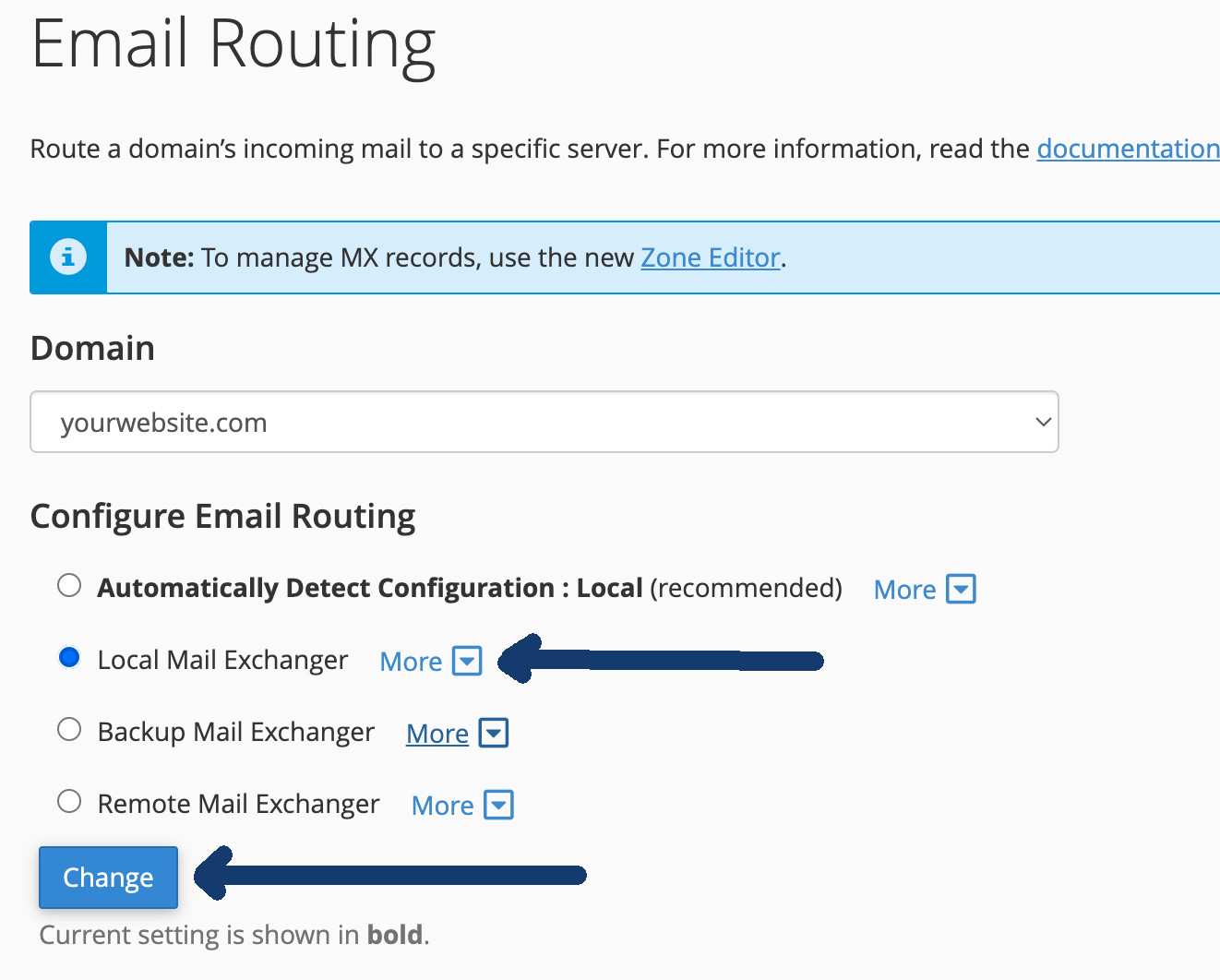The email routing facility is used to tell the mail server where mail for a domain should route.
For example's sake, let's say you have a cPanel hosting account held with us, and this contains a site that has a contact form, but the mailboxes (for the domain of the site) are held with an external provider (i.e. not in the "email accounts" section of the cPanel that contains the site).
In this scenario, you'd set email routing to remote, then click the "change" button. This tells our mail server to route the contact form emails to an external source:

If you are operating in the manner outlined above, but don't set email routing to remote, the mail server will attempt to deliver contact form emails to mailboxes held in your cPanel, which don't exist.
If you have a site with a contact form, and mailboxes all held in a cPanel account with us, you'd set email routing to local, as the mailboxes are local to the server containing the site.
If you have mailboxes held in your cPanel with us, but your site is held externally you'd still set email routing to local, because the mailboxes are local to the server accepting the incoming contact form email:


